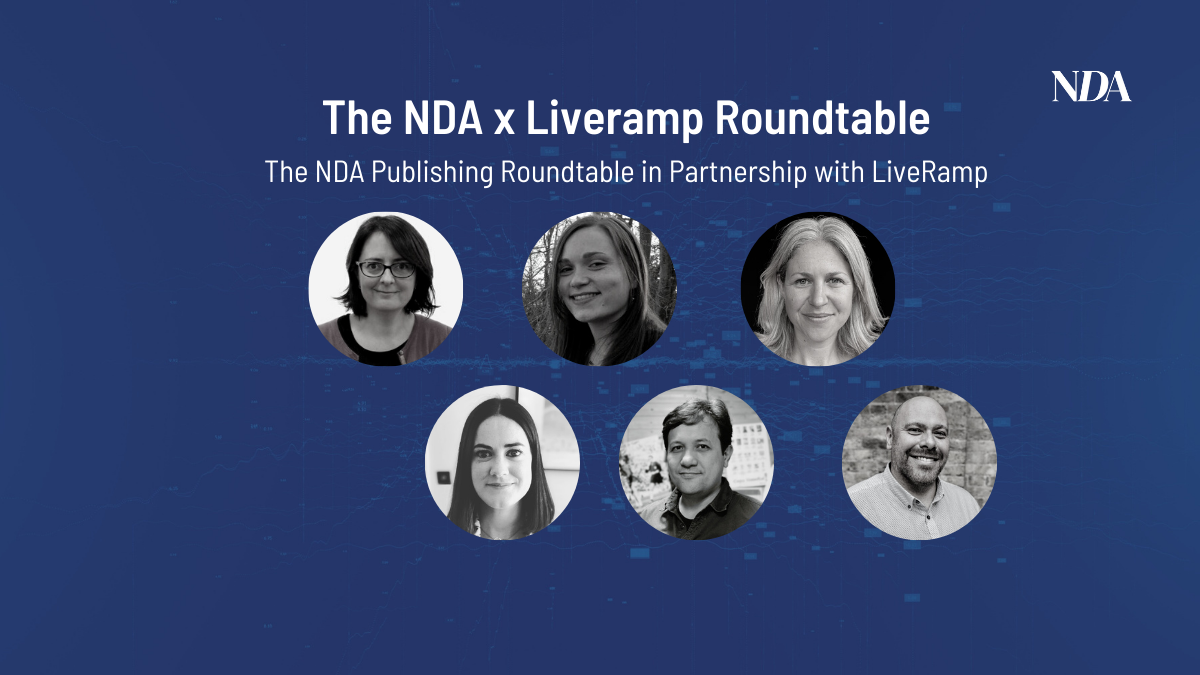Last month, LiveRamp partnered with New Digital Age to hold a roundtable discussing the deprecation of third-party cookies and what this means for publishers. This followed a survey we carried out earlier in the year where we spoke to 251 UK marketing professionals to get their views on the changes taking place within the digital advertising industry. Indeed, one of the key findings was that 78% of marketers believe that the withdrawal of third-party cookies will have a positive impact on their advertising strategy – an encouraging sign for publishers.
The roundtable featured insights from leading publishers including Jo Holdaway, Chief Data & Marketing Officer at Independent Digital News and Media; Eleanor Marshall, Commercial Data Director at Global; Sherzod Rizaev, Vice President of Commercial Operations at Minute Media; Jane Brady, Head of Brand Partnerships at Mumsnet; Sarah Lavery, Global Programmatic & Operations Director at IDG; and LiveRamp’s Head of Publishers, UK, Ryan Afshar.
Here are our three key takeaways:
1. The end of third-party cookies will benefit publishers in the long term
Many publishers will now be looking to focus on utilising first-party data due to its high value and quality. Although publishers are not expecting revenue to be impacted due to the change, there is still a concern that digital ad spend may be pushed into other media to achieve target CPA’s.
Although some publishers are wary that these changes will make targeting and measurement more difficult across digital campaigns, the demise of the third-party cookie is giving publishers the freedom to move their attention towards a first-party ecosystem rooted in audience engagement for the first time in over twenty years. There are a number of long term benefits for publishers switching to a first-party data strategy, such as the power to collect fully consented data, the opportunity to build a ‘known’ audience for advertising as well as growing their content performance with personalised recommendations.
2. Implementing new strategies
With the demise of third-party cookies impending, the industry has been working to find ways in which it can continue to be effective in a world without easy access to consumer data. To combat this, there are a number of strategies which publishers could adopt; one of which focuses on authenticated first-party data.
In fact, one encouraging aspect for the publisher community is that brands are wanting to have increased direct contact with publishers as they are utilising ID solutions more, and are willing to pay more for inventory based on authenticated traffic and data. Going forward, it is time for publishers to start developing deeper, more profitable collaborations with brand advertisers by leveraging privacy-compliant, first-party authenticated data to its full potential.
Take time to figure out your authentication strategy
In order to adapt to the demise of third-party cookies, optimising first-party data will be a significant factor in the success of publishers. They will need to build stronger, more direct relationships with users and must make the value exchange clear to their readers. On the other hand, for some publishers who do not necessarily get a large volume of repeat visitors, the collection of data can be more difficult. This is leaving them to find alternative authentication strategies such as revamping newsletters, new login strategies or employing a Customer Data Platform. But, there is not a one-size fits all approach to driving authentication. And Google’s delay in the demise of third-party cookies means that publishers have time to test multiple authentication strategies to figure out what works best for them and grow their authentication base.
Read the summary of the discussion on New Digital Age.
